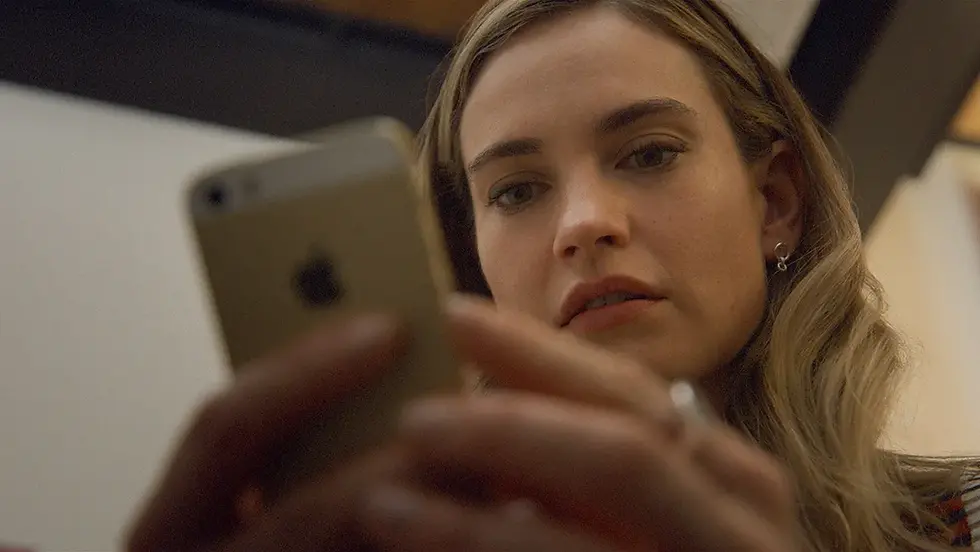'Swiped' review: Bumble and Tinder's origin story loses its bite on screen
- Nate Adams

- Sep 16, 2025
- 2 min read

Courtesy of 20th Century Studios/Hulu
Desperately trying to be “The Social Network” but for the rise of Tinder and Bumble, “Swiped” offers a surface-level story that shows little interest in actually exploring the revolution of online courtship. Lily James stars as self-made billionaire Whitney Wolfe Herd introduced—as all protagonists in this genre are—as a scrappy, ambitious entrepreneur determined to make her mark on the world.
The pitfalls of online dating are well-documented: the culture of harassment, unsolicited advances, and the flood of lewd photos that turned once-hopeful spaces into minefields. Yet “Swiped” treats these struggles in broad strokes, preferring what often feels like the Hallmark version of a Silicon Valley origin story. Director Rachel Lee Goldenberg’s intentions seem genuine, and James does her best to anchor the film, but the narrative badly needs urgency and sharper questions. Too often it cruises past milestones or skips over Wolfe Herd’s own flawed practices. Where “The Social Network” interrogated society’s uneasy relationship with social media and wasn’t afraid to portray Mark Zuckerberg in an unflattering light, “Swiped” seems unwilling to hold its subject accountable.
The film traces Wolfe Herd’s climb through the male-dominated tech food chain, eventually leading to Bumble after her public fallout with Tinder’s co-creators. The app’s mission, designing a platform that made dating not only better for women, but safer, was noble and timely, particularly in the post-#MeToo era. But the film only gestures toward these ideas. It waits until the closing stretch to spark a conversation about safety, harassment, and gendered power dynamics, only to resolve it in minutes. The result feels like an afterthought rather than the point.
Online dating itself is a fascinating paradox the film barely touches. Apps like Tinder and Bumble have broadened the dating pool, giving people access to matches they’d never meet otherwise. They can empower users, especially women, with more agency over who initiates contact. But they’ve also commodified intimacy, reducing potential partners to swipeable commodities, and have been linked to increased loneliness and burnout. A film that seriously examined that double-edged sword could have been revelatory.
Earlier this year, Celine Song’s “Materialist” captured the modern doldrums of 21st-century romance with more thought, honesty, and precision. You can imagine a version of “Swiped” that sought a similar truth: asking why people crave connection online, how that pursuit can become superficial without even realizing it, and how a “female-friendly” brand of tech might still replicate the very problems it claims to solve. Instead, by refusing to complicate Wolfe Herd’s image or confront the darker contradictions of dating apps, “Swiped” ends up feeling toothless.
Don’t swipe right on this one.
Grade: C-
SWIPED streams on Hulu Friday, September 19th.





Comments